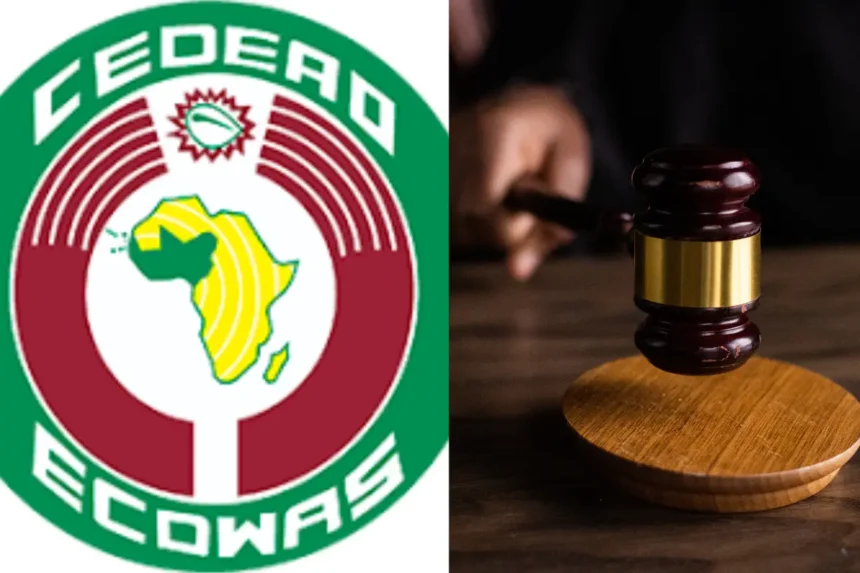Abuja, Nigeria – The ECOWAS Community Court of Justice has delivered a landmark judgment declaring parts of Kano State’s blasphemy laws unconstitutional under international human rights standards, and has ordered the Nigerian government to amend or repeal the offending legal provisions.
The case, filed by the Incorporated Trustees of Expression Now Human Rights Initiative and marked ECW/CCJ/APP/41/23, challenged the legality of certain sections of the Kano State Penal Code and the Kano State Sharia Penal Code Law (2000). The Court found that Section 210 of the Penal Code and Section 382(b) of the Sharia Penal Code violated the right to freedom of expression, as enshrined in regional and international human rights treaties.
A three-member panel comprising Justice Ricardo Gonçalves (President), Justice Sengu Koroma, and Justice Dupe Atoki unanimously delivered the ruling on Friday.
According to the judgment, these laws are inconsistent with Article 9(2) of the African Charter on Human and Peoples’ Rights and Article 19 of the International Covenant on Civil and Political Rights (ICCPR), both of which Nigeria is a signatory to.
The human rights organization argued that the laws have resulted in arbitrary arrests, prolonged detentions, and in some cases, death sentences—often accompanied by mob violence or killing like Deborah Emmanuel. The Court acknowledged these concerns but ruled that media reports alone did not constitute sufficient legal proof that the Nigerian state had failed to prevent such mob actions.
The Court criticized Section 210 for being vague, noting that it does not clearly define what constitutes an “insult to religion,” thereby failing to meet the standards of legal certainty required under human rights law. Section 382(b), which prescribes the death penalty for insulting the Prophet Muhammad, was found to be excessive and disproportionate, particularly in a democratic society.
While recognizing the state’s legitimate interest in maintaining public order and respecting religious sentiments, the Court emphasized that such interests must be carefully balanced against fundamental rights—including the right to freedom of expression. In this case, the Court concluded, Kano State’s laws failed to maintain that balance.
Court Orders:
- The Court affirmed its jurisdiction to hear the case and found the application admissible concerning the right to freedom of expression.
- It declared that Section 210 of the Kano State Penal Code and Section 382(b) of the Kano State Sharia Penal Code Law (2000) are incompatible with Nigeria’s obligations under international human rights law.
- It ordered the Federal Republic of Nigeria to repeal or amend the identified legal provisions and other similar laws to bring them in line with Article 9(2) of the African Charter and other relevant legal instruments.
The ruling places increased pressure on the Nigerian government to ensure its legal frameworks align with its international commitments to protect human rights, particularly freedom of expression.


















